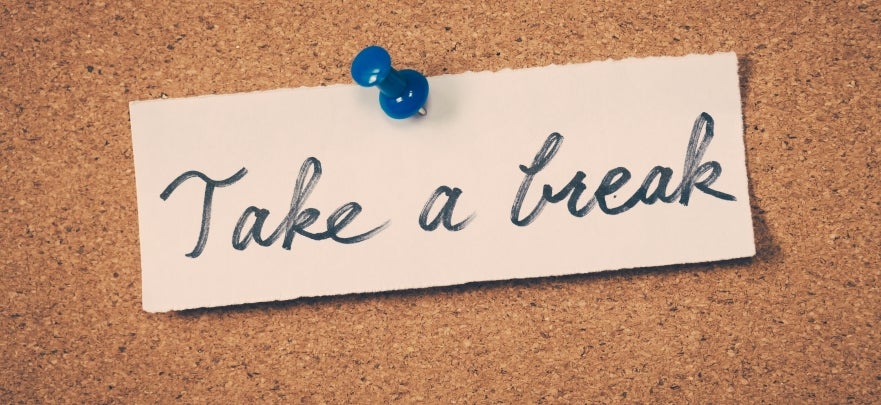How to Deal with Plateaus and Taking Breaks
We’ve all been there. You’re working hard and achieving your goals, feeling stronger, breaking records, and noticing how great your clothes are fitting. You’re a rock star!
Then it happens. One day progress just stops. The number of reps you can push stays the same, how fast you can run that mile doesn’t improve, and nothing seems to change for a long time. Suddenly, after months of continuous momentum, your improvements stall. Or maybe you just can’t lose those last 5 pounds even though the first 10 dropped pretty quickly.
Well guess what? You’ve hit the mysterious plateau.
So what exactly is a plateau? To put it simply: You’re doing all the right things but failing to make progress. It’s unbelievably frustrating and, unfortunately, it’s inevitable. There are many reasons a plateau could happen. Here are some examples:
- Not pushing hard enough during your workouts
- Not giving your body adequate nutrition
- Having mental blocks about a certain exercise or just working out
- Needing to take a small break—recovery and rest—from training
You can’t prepare for, or prevent, them; plateaus will happen. Everybody plateaus at some point.
Rest easy and chin up because you can push through them and keep making progress. Here are some ways to deal with plateaus:
Take Some Time Off
Sometimes your body just needs a break. It’s OK. Listen to your body. Take a week, or two, away from hardcore training here and there. Maybe you’re going on vacation, or you’re just at home and your body is asking for a break. It helps your body to recover from all the training, keeps you from overtraining, and, more often than not, will help you get past any plateaus you’ve been experiencing.
Keep Better Track of Your Progress
How do you know you’ve actually plateaued? A few questions might help:
- Are you vigilant and track your reps/time/improvement/ PRs?
- Do you keep some sort of fitness journal?
- Do you track your goals and progress?
I’d venture to say, no. Not a problem. Most people don’t do a great job of tracking any of this. But how will you know you’ve actually plateaued if you don’t keep track?
Mix Up Your Training
This could mean different things such as changing the number of days per week that you work out or adding a new sport or skill to your routine. Doing something entirely different may actually give your body the break it needs to recover from your usual routine.
Work Harder
Ask yourself these questions: How consistent are you? Do you make sure to work out often enough to meet your goals? How hard are you exercising during your workouts? Do you often feel like you have a lot more to give afterward?
We’re all busy. That’s life. Recognizing that you could give much more during your workouts and could be more consistent with your workouts might help you understand why you’ve hit a plateau. If you want to continue moving forward with your goals, no matter what they may be, you have to be willing to push yourself past your personal limits a good portion of the time.
Give Yourself a Break
Everybody has bad days, weeks, months, even years. We get so stressed with work or family that our bodies just don’t cooperate. Accept that that’s how it is and don’t be too hard on yourself. Don’t give up and know that you’re going through a hard time. It’s temporary. You will get through it.






